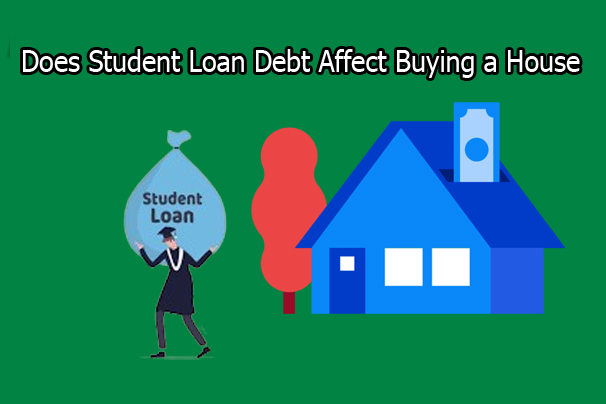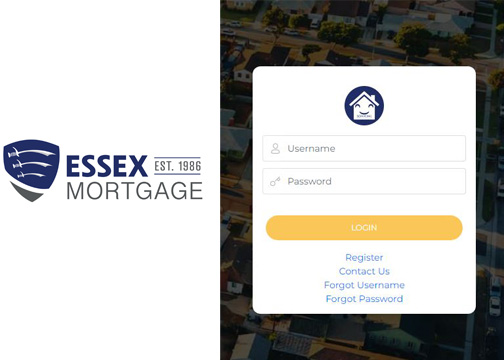When pursuing other financial objectives, such as buying a house, student loan debt might be a significant obstacle that might affect you. Because taking on a second loan debt raises the risk of failing on one or both of the loans, lenders prefer to approve customers with low debt. Apart from the difficulties in being accepted, student loans can also make it more difficult to save money for major purchases.

These major purchases include a down payment, moving expenses, and closing charges. Even though student loans will unavoidably affect your debt-to-income ratio and make saving for a down payment more difficult, there are still several situations in which you have some control. This implies that you can lessen the effects of your student debt.
Does Student Loan Debt Affect Buying a House
Having student loan debt may affect your ability in buying a house. It might be expensive to pay off college loans in addition to a mortgage. In addition, a lot of millennial blame high student loan debt for their protracted home-buying indecision.
A $1,000 student loan debt causes a four-month delay in becoming a homeowner. Student loan debt reduces the amount of money you have available for both a down payment and housing costs, which can affect your ability to buy a house. Therefore, if you have more debt and make a smaller down payment, your chances of getting approved by a mortgage lender are decreased.
How Does Student Loan Debt Affect Buying a House
If you’re hoping to buy a house, you might be wondering if having student debt will make it harder to get a mortgage. Despite not being impossible, having student loan debt can make it more challenging to purchase a property for the following reasons:
Debt-to-income ratio
When you apply for a mortgage, one of the main things lenders consider is your debt-to-income ratio (DTI). The debt-to-income ratio (DTI) calculates how much of your monthly income is used to pay off debt. You have a worse chance of getting a loan authorized if your DTI is higher. Lenders for mortgages often require a DTI of 43% or less.
Even loans from the Federal Housing Administration (FHA), which have laxer standards, demand a relatively low DTI. Your monthly payments can result in a significantly higher DTI if you have a significant amount of student loan debt, which would make it more challenging for you to get approved for a home loan. Look for measures to reduce your debt-to-income ratio, such as paying off debt or raising your income, to increase your chances of receiving a loan.
Credit score
Another significant consideration that mortgage lenders will have when you apply for a loan is your credit score. Lenders can tell you’re a reliable borrower with a solid payment history if you have a high credit score. Your credit score may be impacted if you owe money on student loans.
Missed payments are the most prevalent problem relating to student loans. A single late payment can harm your credit severely. When you fail to make a student loan payment, the credit bureaus are notified of the delinquent account. It’s a good idea to see where you are with your credit score before applying for a mortgage. AnnualCreditReport.com offers free credit reports.
Saving for the down payment
You must save money for a down payment on a home in addition to having a decent credit score and DTI ratio. Although saving 20% of the desired home’s worth is generally advised, several mortgage choices allow for lower down payments. Making a down payment may be more challenging if you owe money on student loans.
This is because, after paying off your loans, you have less money available each month, which makes it difficult to choose between saving and debt repayment. But even with school loans, it is still feasible to purchase a house. In your state, there might be programs for first-time homebuyers that could aid you with closing costs or the down payment. Alternatively, you might be eligible for an FHA loan, which only requires a 3.5% down payment.
Ways to Buy a House with Student Loan Debt
Many homeowners also owe money on their school loans. Here are some strategies for handling your student loan debt when purchasing a home:
Apply for down payment grants
First-time homeowners may be eligible for down payment grants from regional and national down payment assistance programs. Your down payment may be fully or partially covered by these programs. Typically, borrowers require a credit score of at least 600.
Examine loans with no down payment requirements
VA loans, which don’t demand a down payment, are available to both current and former service members. A USDA loan, which requires no down payment, is another option available to those who purchase properties in rural areas.
Reduce your DTI
You can reduce your DTI by paying off some small loans rapidly because the DTI only accounts for your monthly debt payments and not the entire amount owed. To lower your monthly student loan payment, you can also move to a lengthier repayment plan, like an income-driven repayment plan or an extended repayment plan.
Refinance your student loans
If interest rates on your private student loans were excessive, you may think about refinancing to a reduced rate. It will be simpler for you to qualify for a mortgage if you refinance to a cheaper rate because you will save interest and maybe lower your DTI.
Final Thoughts
Even with student loan debt, you can still purchase a home, but you must be aware of how your monthly payments affect your DTI. Before approving your loan, lenders will take into account all of your financial circumstances. When trying to manage student loans, carefully evaluate your financial goals and circumstances to see if it makes sense for you to purchase a property.





